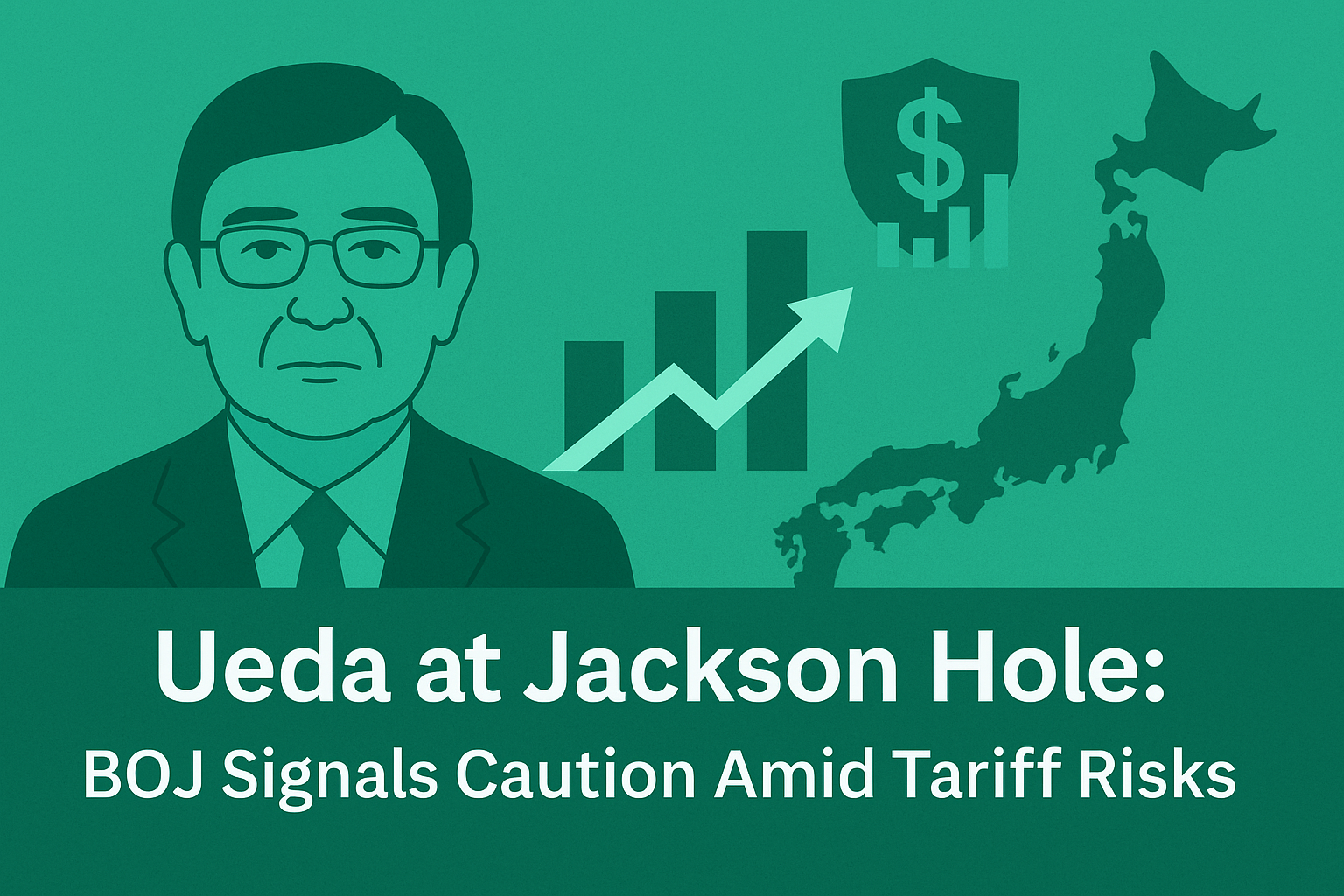Introduction
At the 2025 Jackson Hole Economic Symposium, Bank of Japan Governor Kazuo Ueda joined global central bankers in a panel discussion on labor market dynamics and policy implications. His remarks reflected a distinctly cautious stance, balancing the BOJ’s ongoing policy normalization with rising uncertainties from global trade tensions and tariffs.
1. Ueda’s Key Messages
Labor Market and Policy Implications
Governor Ueda emphasized that Japan’s monetary policy decisions must remain data-driven, particularly as labor market conditions evolve. He noted that while inflationary pressures have moderated, risks stemming from wage dynamics and employment remain a focal point for the BOJ.
Tariff Risks
Ueda highlighted growing concerns over U.S. tariff policies under President Trump. He pointed to potential spillover effects on Japan’s exports, capital investment, and consumer confidence. By framing tariffs as a structural risk, he signaled that the BOJ would not rush into rate hikes amid such global uncertainties.
Tone and Policy Stance
While some BOJ board members have expressed more hawkish views due to rising food and energy prices, Ueda reiterated his cautious and flexible approach, prioritizing stability and economic recovery over aggressive tightening.
2. Implications for BOJ Policy
- Slower Pace of Normalization
With tariffs threatening to dampen exports and investment, the BOJ is expected to moderate the speed of its policy normalization. - Currency and Trade Balance
A weaker yen, amplified by global rate differentials, benefits exporters but adds to domestic inflation risks. Ueda’s careful tone signals a willingness to tolerate this trade-off while monitoring capital flows. - Global Coordination
Sharing the stage with ECB President Christine Lagarde and BOE Governor Andrew Bailey, Ueda emphasized the importance of policy coordination and dialogue among major central banks to manage systemic risks.
3. Economist’s View
From an economist’s perspective, Ueda’s message is strategically important. His caution reflects an understanding that tariff-driven shocks are structural supply-side disruptions, not easily countered by interest rate adjustments. By stressing flexibility, Ueda preserves the BOJ’s ability to act decisively if external shocks worsen, while avoiding premature tightening that could derail Japan’s fragile recovery.
Conclusion
Governor Ueda’s remarks at Jackson Hole reaffirmed the BOJ’s data-dependent and cautious stance. As tariffs reshape global trade flows and pressure supply chains, the BOJ is likely to proceed slowly with policy normalization, balancing domestic inflation risks with global economic headwinds. For investors and policymakers alike, Ueda’s tone underscores that Japan’s monetary policy will remain measured, pragmatic, and globally aware in the turbulent years ahead.


